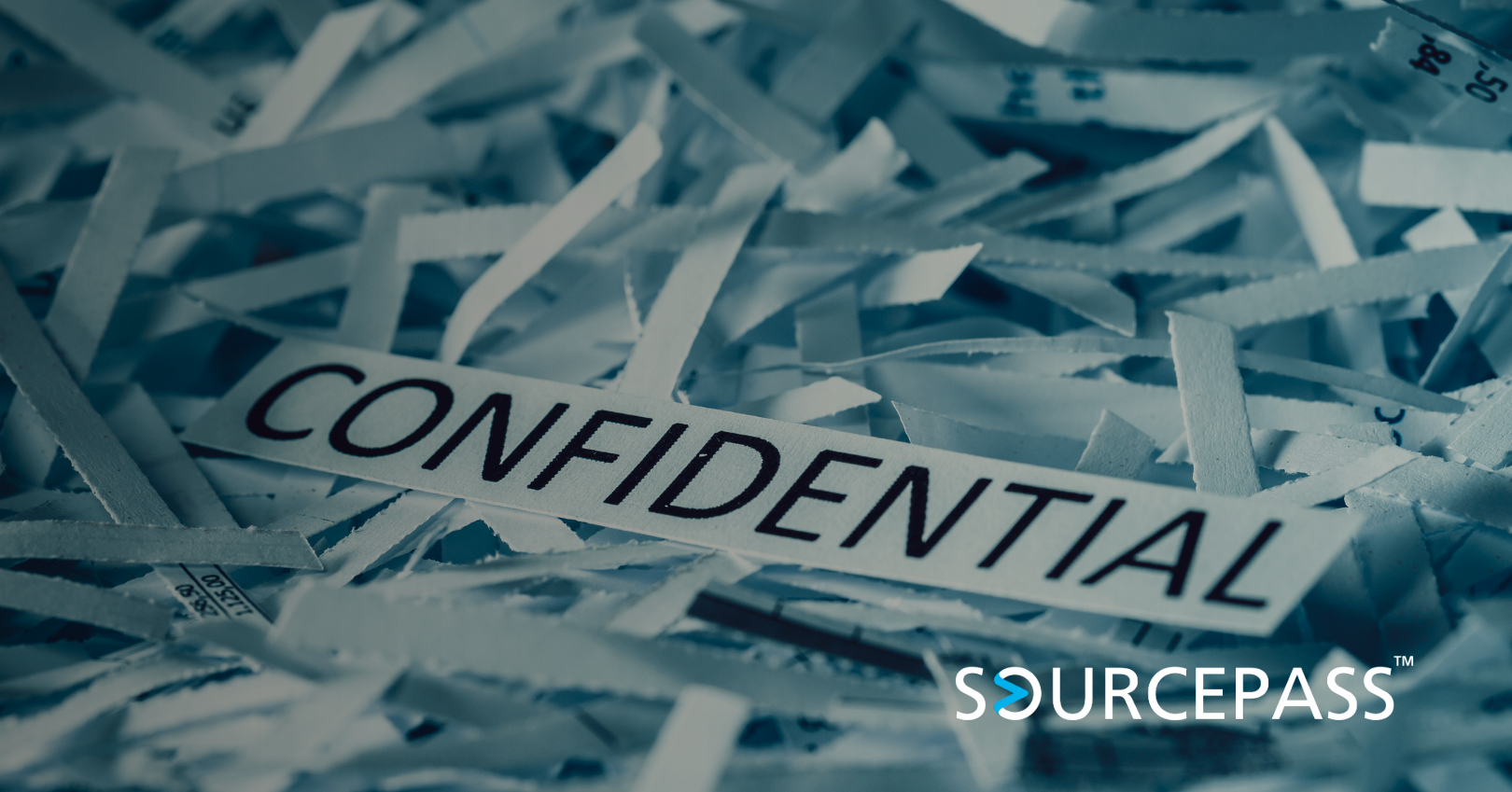Why Your Business Needs an Equipment and Electronic Records Destruction Policy
Mar 21, 2025 Julia Nolan Security & Compliance 3 min read



In today’s digital age, businesses generate, store, and manage vast amounts of sensitive customer data. Whether it’s financial records, personal information, or confidential business data, safeguarding this information is important. One crucial aspect of data protection that is often overlooked is the secure destruction of equipment and electronic records.
This blog explores why having a documented equipment and electronic records destruction policy in place is essential for businesses looking to minimize the risk of data breaches, maintain compliance with data protection regulations, and protect sensitive customer information.
What is an Equipment and Electronic Records Destruction Policy
An equipment and electronic records destruction policy outlines the proper procedures for securely disposing of or destroying physical and digital assets when they are no longer needed. This includes:
- Physical equipment: Computers, hard drives, mobile devices, and other hardware that store sensitive data.
- Electronic records: Files, databases, and other digital records that contain customer information, financial data, or proprietary business information.
The policy should ensure that all data is effectively erased or destroyed in a way that prevents unauthorized access or recovery.
Why a Destruction Policy is Crucial for Your Business
Reason 1: Protecting Sensitive Customer Information
The most important reason for having an equipment and electronic records destruction policy is to protect sensitive customer information. When devices like computers, mobile phones, or USB drives are disposed of improperly, the data on them can often be recovered using specialized tools, even after the device has been wiped. If this data contains personally identifiable information (PII), financial details, or confidential business data, it can easily fall into the wrong hands, leading to identity theft, fraud, or other malicious activities.
A documented destruction policy ensures that all electronic records and equipment are properly sanitized before disposal or recycling, minimizing the risk of a data breach and ensuring sensitive customer information is kept safe.
Reason 2: Compliance with Data Protection Regulations
With data privacy regulations becoming more stringent worldwide, businesses are required to take proactive measures to protect customer information. Laws such as the General Data Protection Regulation (GDPR), California Consumer Privacy Act (CCPA), and Health Insurance Portability and Accountability Act (HIPAA) mandate that businesses safeguard personal data and properly dispose of it when no longer needed.
Failure to comply with these regulations can result in hefty fines, legal consequences, and reputational damage. A documented destruction policy helps businesses ensure they meet these legal requirements, reducing the risk of non-compliance and the associated penalties.
Reason 3: Minimizing the Risk of Data Breaches
Data breaches are among the most significant threats to a business’s security and reputation. While much focus is placed on protecting data while it is in use, many businesses neglect the importance of secure data destruction.
Improper disposal of electronic records or old equipment increases the likelihood of a data breach, especially if devices containing sensitive data are simply thrown away or recycled without proper data sanitization.
A well-documented destruction policy ensures that data is completely destroyed in a manner that makes it virtually impossible to recover. This is especially critical for preventing the misuse of data after an employee leaves the business, when old devices may be decommissioned or discarded.
Reason 4: Ensuring Operational Efficiency
Having a formal destruction policy helps businesses stay organized and maintain efficient records management practices. By setting clear guidelines on when and how records and equipment should be destroyed, businesses can avoid the accumulation of outdated and unnecessary files, which can create clutter and hinder productivity.
A well-structured policy ensures that the destruction process is systematic, eliminating the need for time-consuming manual efforts to track and manage obsolete records or devices.
Reason 5: Protecting Your Business’s Reputation
A business’s reputation is one of its most valuable assets, and a data breach can have lasting negative effects. Beyond the financial costs and legal ramifications, a breach of customer trust can result in lost clients, reduced sales, and damage to the brand’s image.
By implementing a comprehensive destruction policy, businesses can demonstrate their commitment to data protection and build trust with their customers. This proactive approach shows clients and partners that the business takes data privacy seriously and is willing to invest in measures that protect their information.
.png?width=1006&height=464&name=Copy%20of%20SocialWebpage%20Featured%20Image%202024%20(1).png)
Key Elements of an Equipment and Electronic Records Destruction Policy
A robust equipment and electronic records destruction policy should include the following key components:
- Clear Guidelines for Destruction: Define how various types of electronic records and equipment will be destroyed, including methods like degaussing, shredding, or using software to securely wipe data.
- Secure Disposal Procedures: Outline the steps to ensure that discarded equipment or records are handled securely throughout the disposal process, including tracking and using third-party vendors that meet security standards.
- Employee Training: Educate employees on the importance of data destruction and the specific procedures to follow when disposing of equipment or records.
- Regular Audits and Reviews: Conduct regular audits to verify that destruction practices are being followed and to identify potential areas of improvement.
- Compliance with Regulations: Ensure the policy aligns with local, national, and international data protection regulations, such as GDPR, HIPAA, etc.
Best Practices for Implementing a Destruction Policy
Some best practices for the policy include:
- Use Certified Destruction Services: When outsourcing destruction, choose certified businesses that meet industry standards for secure data disposal.
- Document All Disposals: Keep records of the destruction process for each piece of equipment or data set to demonstrate compliance during audits.
- Establish a Timeline: Regularly schedule destruction activities to ensure that outdated equipment and records are destroyed promptly.
- Ensure Secure Disposal of Backup Media: Backup tapes, cloud storage, and other backup media should also be securely destroyed when they are no longer needed.
Learn more about why your business needs a Destruction Policy with Sourcepass
Protect sensitive data and prevent unauthorized access and misuse.
Contact Sourcepass to speak with a Sourcepass Specialist to learn more!
Subscribe To
Sourcepass Insights
Sourcepass Insights
Stay in the loop and never miss out on the latest updates by subscribing to our newsletter today!
.png?width=500&height=100&name=White%20Logo%20-%20Transparent%20Tag%20(3).png)



